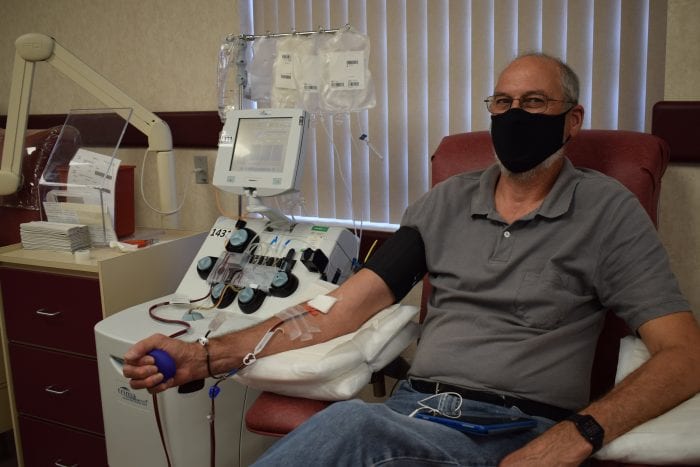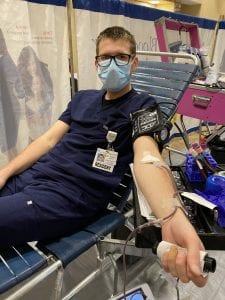Blood Donations Down as Local Hospitals Need Help

Local hospitals are in need of blood, and they are joining forces with New York Blood Center to get the word out that a donation could save a life.

According to Andrea Cefarelli, senior executive director at New York Blood Center, because of the current pandemic, there is a huge shortage across the country with no sign of any more supplies incoming.
“This is a chronic deficit in blood donations so we’re trying to raise awareness,” she said.
Cefarelli explained that before the pandemic, 75% of blood donations came from the community.
“We came to you in your place of work, place of worship and schools,” she said. “It was super easy to donate blood.”
According to its Facebook page, NYBC provides lifesaving blood products and services to nearly 200 hospitals in New York, New Jersey, Long Island, the Hudson Valley, and parts of Connecticut and Pennsylvania.
But because of COVID-19, people aren’t going out to donate, especially since blood drives at schools, colleges, offices and other community groups have been canceled.
“Post-pandemic we’re running far fewer community blood drives and so it’s not quite as convenient,” Cefarelli said. “We have a deficit of 8,000 donations per month.”
According to NYBC, New York’s health care system requires 1,500 donations each day to treat patients ranging from trauma victims to newborns to cancer patients. The lack of blood donations is “particularly dangerous given the looming uncertainty surrounding the pandemic’s trajectory over the course of this winter,” she said.
Pre-pandemic, NYBC would host 550 community blood drives every month, but it is currently hosting just 280 blood drives per month.
To make up for lost blood, NYBC has teamed up with local and regional hospitals including Northwell Health and Catholic Health Services of Long Island to spread the word and ask people to donate.
“The lack of blood donations has caused shortages of blood types to be available in our blood bank which provides lifesaving blood to all the patients we serve within the community,” said Jon Zenker, the administrative director of Huntington Hospital’s laboratory. “We urge all members of the community who are able to donate blood to help us overcome this critical shortage so that we can continue to serve our patients and provide them with the highest quality of care.”
Greg Slater, a spokesperson with Catholic Health Services, said they have taken extra safety precautions to make people feel comfortable during COVID times.
“It takes a little bit of time to do, but it can be a lifesaving thing for someone else,” he said.
Cefarelli said the lack of first-time donors is also down because of the lack of blood drives in school. She is encouraging young people to lend a helping hand.
“If you bring a son or daughter who’s a first-time donor, who doesn’t have that school experience, we’re welcoming that,” she said. “Making it a fun and safe experience is super important to us.”
She’s also reminding people that blood drives are safe and can be hosted in a socially distanced fashion.
“We have churches, businesses and even some schools realizing that we can host a blood drive that is safe and socially distant,” she said. “We want other organizations to consider hosting a drive.”
Right now, donors can make an appointment online at any NYBC blood collection center. Upon arrival, their temperatures are checked, and masks are required.
Stony Brook University Hospital is also accepting blood donations at their own personal blood bank. According to Linda Pugliese, blood bank donor recruiter at the hospital, every day (except for Sunday) is a blood drive there.
“All of the whole blood and platelets that are donated in the hospital blood bank, stay at the hospital, and help provide patients with the blood products they need,” she said. “Donating at the Stony Brook University Hospital Blood Bank is truly an example of community service.”
Since they are not affiliated with NYBC, SBUH’s blood supply is currently stable, but their demand has reached pre-COVID-19 levels. “There is a critical need to meet the challenges for blood donations created by the pandemic,” she said.






